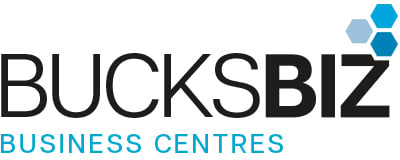26th March is Purple Day for Epilepsy Awareness in the UK. One of the most common serious neurological conditions in the world, Epilepsy affects around 600,000 people in the UK. Are you doing enough within your business to make sure that the 1 in 100 people that suffer from this condition are treated fairly and are able to live their lives to the fullest, despite their condition? Read on for our top tips for employers.
If someone has epilepsy, it means they have a tendency to have epileptic seizures. A seizure happens when there is a sudden burst of intense electrical activity in the brain. What happens during a seizure will depend on where in the brain the epileptic activity begins, and how widely and quickly it spreads. For this reason, there are many different types of seizure, and each person will experience epilepsy in a way that is unique to them. You can read about the most common types of seizures at Epilepsy Action UK

The Health and Safety at Work Act says that employers have a duty to make work environments safe for their employees and this includes making reasonable adjustments for people with conditions like epilepsy. If an employee makes you aware that they have such a condition, the Epilepsy Society recommends you do the following:
1. Carry out a risk assessment
Epilepsy affects people differently and risks to safety will depend on the types of seizures your employee has, and whether they are controlled with medication. Advice on carrying out a risk assessment for epilepsy can be found on the Epilepsy Society's website.
2. Consider making reasonable adjustments
Small changes and considerations within the workplace may be all that is needed to make a huge difference to a person with epilepsy. For example, flickering lights in a workplace might trigger seizures in someone who is sensitive to them. 3% of people with epilepsy are photosensitive, which means triggered by flashing or flickering light. These people are advised to use LCD screen computers. Additional time off work for treatment and appointments as part of a policy of disability leave and extra breaks to avoid becoming overtired might also be useful adjustments.
3. Seek advice from a medical / health and safety / occupational health professional
These advisors can tell you more about the adjustments you can make, particular to your employee's experience with epilepsy. For example, an employee with seizures that always occur in the morning, could be allowed to work later hours. Or, if the person has poor memory for a period following a seizure, instructions could be written down for them, as well as given verbally.
Some people with epilepsy will not need any adjustments in the workplace. This could be people who are completely seizure free, or people who wouldn’t come to any harm should they have a seizure at work.
4. Use the right language
Finally, TUC gives advice on words and phrases that should be avoided when discussing people with epilepsy, since language can go a long way towards reinforcing, or challenging, negative stereotypes. These examples will apply outside the workplace, and to people with other conditions and disabilities too.
Words to avoid
- Illness: epilepsy is a condition, not an illness.
- An epileptic: it is important to look at the person before the medical condition, therefore it is more appropriate to say “a person with epilepsy”.
- A victim, a sufferer: these words imply that someone is helpless.
Words that are okay to use
- Fit: although the term ‘seizure’ or ‘epileptic seizure’ is preferred by many people, some people with epilepsy choose to use the word ‘fit’.
- Brainstorming: If the word is being used to describe a meeting where people are suggesting ideas, then its use is not offensive to people with epilepsy. However, it should not be used to describe what happens in the brain during a seizure.
More advice about employment rights can be found on the Advisory, Conciliation and Arbitration Service (ACAS) website. For further information on medical conditions, from specialist occupational health professionals, check out the Employment Medical Advisory Service (EMAS)
Related Posts
How Can Small Businesses Survive Brexit?
With Brexit and the General Election being the hot topics on most people's lips at the moment, we...
Dyslexia Awareness Week
This week is Dyslexia Awareness Week. Dyslexia is a learning difficulty that affects 10% of the...

Bucks Biz Welcomes A Unique Business
WEIGHT 'N TEARS is an old...
